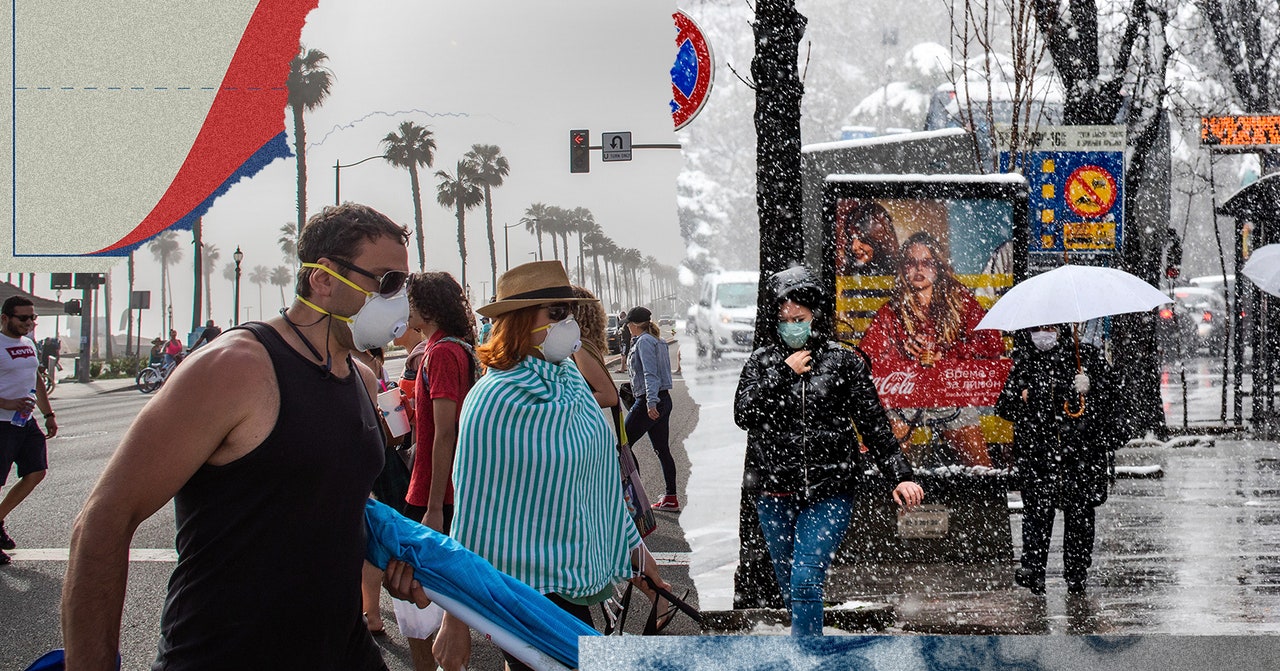The last few days have brought alarming news about the state of the pandemic in the U.S. Hospitalizations from Covid-19 reached new highs in Alabama, Arkansas, California, Florida, Nevada, North Carolina, Oklahoma, South Carolina, Tennessee and Texas; while case totals have been on the rise in recent weeks for more than half the country. But summer starts this weekend, and there’s still good reason to believe that this infection might be seasonal. If that’s the case, then hot and humid weather could attenuate the spread of the disease. Case counts would fall off. Any “second wave” would be delayed.
That’s a good thing, right?
Just a few months ago, we talked of “seasonality” with fingers crossed, as if it were the Covid-19 drama’s version of a deus ex machina. Reuters hinted back in February, when the pandemic’s scope was only just becoming clear, that higher temperatures might “contain the virus.” NPR proposed that maybe—just maybe—summer heat would “crush” the outbreak before it spread too far. Donald Trump, of course, had little interest in the cautious part of any case for cautious optimism: “When it gets a little warmer,” he told supporters at a rally in New Hampshire on Feb. 10, “[the new coronavirus] miraculously goes away.”
That piece of presidential ballyhoo was met with ample scorn and consternation at the time, but the experts’ gripe was mostly that he’d overstated things. Even many scientists agreed, in principle, that seasonality for Covid-19—if it really did apply—would tend to be a good thing in the short term. “I’m happy to hope that it goes down as the weather warms up,” said senior CDC official Nancy Messonnier two days later, “but I think it’s premature to assume that.” Leaving aside the promise of a miracle, it did seem that any spring or summer slowdown could only help to mitigate the damage, overall. At the very least, it might flatten out the curve (remember that?) and help preserve the healthcare infrastructure.
But now that we’re on the cusp of summer, and that hoped-for seasonality could be ready to kick in, its implications no longer seem so rosy. In the longer view—looking ahead to fall and winter, too, and then to 2021—this pattern of infectivity could make the virus even more destructive than we thought. If sunlight and humidity do indeed slow its spread, they won’t knock it out completely in the next few months; and that means we should expect a rebound down the line. What’s more, epidemiologists suggest this down-and-up won’t cancel out and be a wash: In fact, the exponential bounceback in the winter would likely overshadow any slight deceleration that happened in June, July and August. That would be very, very bad.
Read all of our coronavirus coverage here.
To be clear, whether the new coronavirus is really seasonal remains unknown. We still haven’t gone through a full year of this pandemic, so it’s impossible to compare how infection rates have waxed and waned in a single location. Even the beneficial effects of humidity are somewhat uncertain; as Maryn McKenna pointed out in WIRED last month, many studies of

